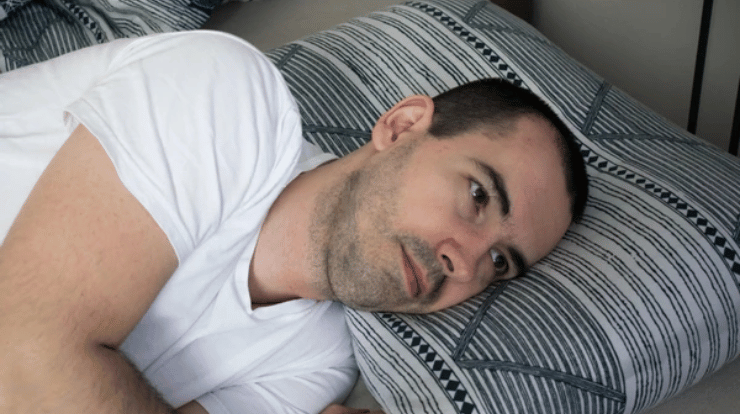
Do you wake up with a cotton-like feeling in your mouth and throat? Do you struggle to wet your lips or even speak in the morning? If yes, then you may be experiencing dry mouth while sleeping. A dry mouth while sleeping is a common and often frustrating issue that many people experience. Not only is it uncomfortable, but it can also lead to dehydration and a host of other oral health problems. In this blog post, we will explore the causes, symptoms, and treatments for dry mouth while sleeping, helping you find relief and a good night’s sleep.
What is a dry mouth a sign of?
Many people have questions: What causes extremely dry mouth while sleeping? / What are the causes of dry mouth at night?
A dry mouth, also known as xerostomia, is a condition in which there is a decreased production of saliva in the mouth. A dry mouth can be a sign of several underlying health conditions, lifestyle factors, and medications.
1. Health conditions that can cause dry mouth include:
- Sjogren’s syndrome – an autoimmune disorder that affects the glands responsible for producing saliva and tears
- Diabetes – high blood sugar levels can lead to dry mouth as a side effect
- HIV/AIDS – this condition can cause dry mouth as a result of medications used to treat it, as well as the disease itself
- Neurological conditions – such as Parkinson’s disease, multiple sclerosis, and Alzheimer’s disease can cause dry mouth as a side effect
- Dehydration – when the body does not have enough fluids, saliva production can decrease, causing a dry mouth
- Rheumatoid arthritis – this autoimmune disease can affect the salivary glands and lead to dry mouth
- Surgical procedures – procedures such as radiation therapy for cancer treatment can cause dry mouth as a side effect.
2. Lifestyle factors that can cause dry mouth include:
- Smoking – tobacco use can decrease the production of saliva and cause a dry mouth
- Alcohol consumption – drinking alcohol can lead to dehydration and dry mouth
- Caffeine intake – consuming caffeine-rich drinks such as coffee, tea, and soda can lead to a dry mouth
- Stress – stress, and anxiety can lead to a decrease in saliva production and cause dry mouth.
3. Medications that can cause dry mouth include:
- Antidepressants – certain antidepressant medications can decrease saliva production and cause dry mouth
- Painkillers – drugs such as opioids can cause dry mouth as a side effect
- Decongestants – over-the-counter decongestants can cause dry mouth
- Antihistamines – drugs used to treat allergies can cause dry mouth as a side effect
It is important to note that having a dry mouth can lead to other oral health problems, such as increased tooth decay, gum disease, and fungal infections. If you are experiencing a dry mouth, it is essential to speak with a healthcare professional to determine the underlying cause and receive proper treatment.
In conclusion, dry mouth is a common condition that can be a sign of several underlying health conditions, lifestyle factors, and medications. It is important to address the cause of dry mouth and receive proper treatment to prevent further oral health problems. If you are experiencing a dry mouth, speak with a healthcare professional to determine the underlying cause and receive proper treatment.

How to prevent dry mouth while sleeping?
Dry mouth is a common issue that many people experience while sleeping, especially those with certain medical conditions, taking certain medications, or sleeping habits that affect saliva production. Here are the top 9 tips to help prevent dry mouth while sleeping:
1. Stay Hydrated: Drinking plenty of water throughout the day can help keep your mouth moist and prevent dryness while sleeping. Aim to drink at least 8 glasses of water a day.
2. Chew Sugar-Free Gum or Candy: Chewing gum or sucking on sugar-free candy can stimulate saliva production and help prevent dry mouth.
3. Use a Humidifier: A humidifier can help add moisture to the air and prevent dry mouth while sleeping. (You can buy Humidifier)
4. Avoid Alcohol and Caffeine: Alcohol and caffeine can both lead to dehydration and dry mouth, so it’s best to avoid them before bedtime.
5. Avoid Breathing Through Your Mouth: Breathing through your nose instead of your mouth can help keep your mouth moist and prevent dryness.
6. Sleep with Your Head Elevated: Sleeping with your head elevated can help prevent saliva from flowing back into your throat and causing a dry mouth.
7. Use a Mouth Rinse: Rinsing your mouth with water or an over-the-counter mouth rinse can help keep your mouth moist and prevent dryness. (You can buy Mouth Rinse)
8. Avoid Certain Medications: If you are taking medications that cause dry mouth, talk to your doctor about switching to a different medication or adjusting the dosage.
9. Practice Good Oral Hygiene: Brushing and flossing regularly can help prevent dry mouth by removing bacteria and food particles that can contribute to dryness.
In addition to these tips, it may be helpful to see a doctor or dentist if you are experiencing persistent dry mouth, as it can be a symptom of an underlying medical condition. With the right combination of lifestyle changes and medical treatment, it is possible to effectively prevent dry mouth while sleeping and ensure a more restful and comfortable sleep experience.
Why is my mouth dry even though I drink a lot of water?
There can be several reasons why you might be experiencing dry mouth even though you are drinking a lot of water. Some common causes include:
1. Dehydration: Despite drinking water, you may still be dehydrated if you are not drinking enough or are losing fluids through sweating, urination, or other bodily functions.
2. Medications: Certain medications, such as antihistamines, decongestants, and some antidepressants, can cause dry mouth as a side effect.
3. Medical conditions: Dry mouth can also be a symptom of medical conditions such as Sjogren’s syndrome, diabetes, and HIV/AIDS.
4. Breathing through your mouth: If you breathe through your mouth while sleeping or during the day, you may be causing your mouth to become dry.
5. Salivary gland problems: Disorders of the salivary glands, such as infection or blockages, can reduce the amount of saliva produced and lead to dry mouth.
6. Smoking and alcohol use: Smoking and alcohol use can both cause dry mouth and make it more difficult for your mouth to produce saliva.
If you continue to experience dry mouth despite drinking plenty of water, it is recommended that you see a doctor or dentist to determine the underlying cause and receive appropriate treatment.






